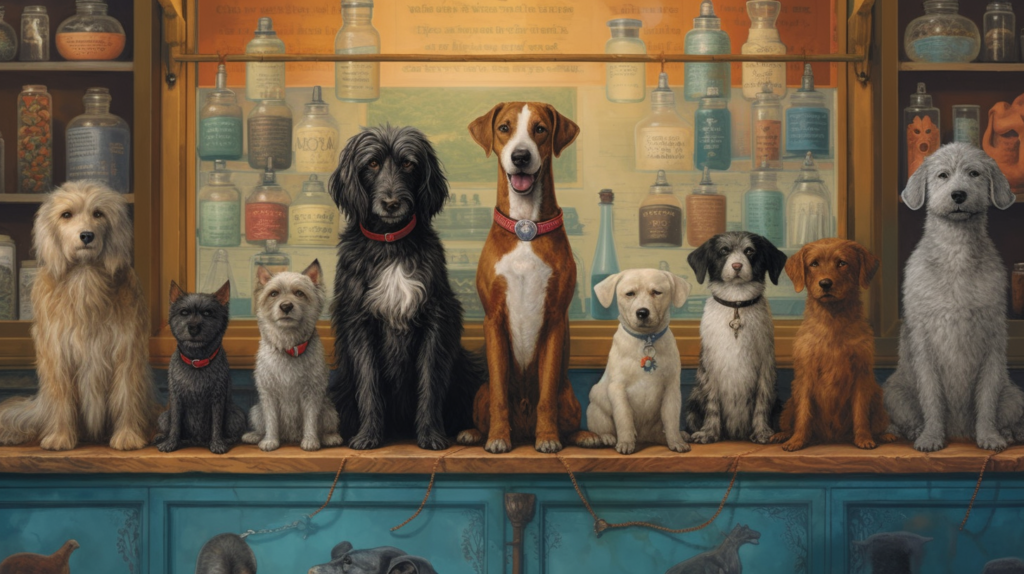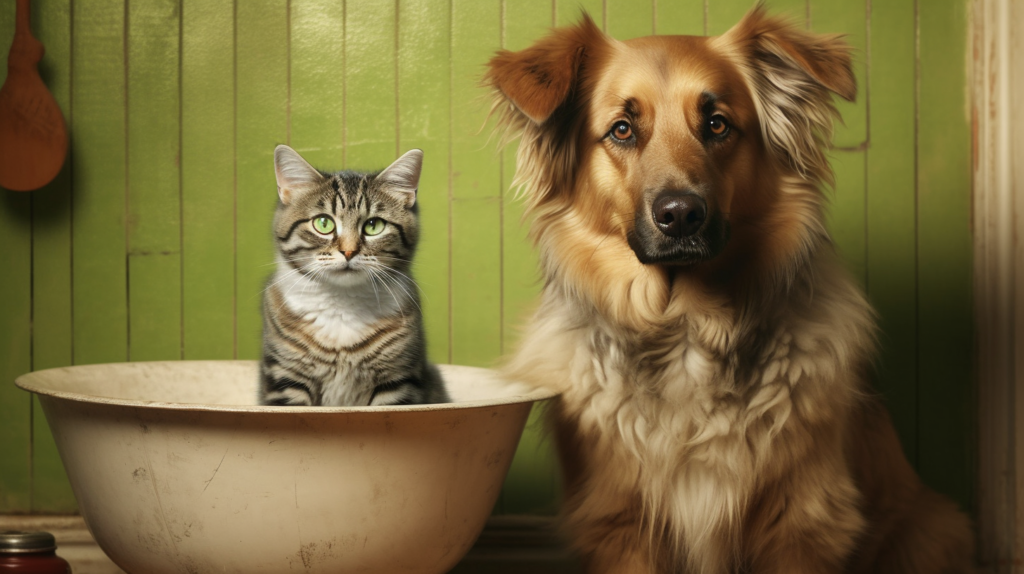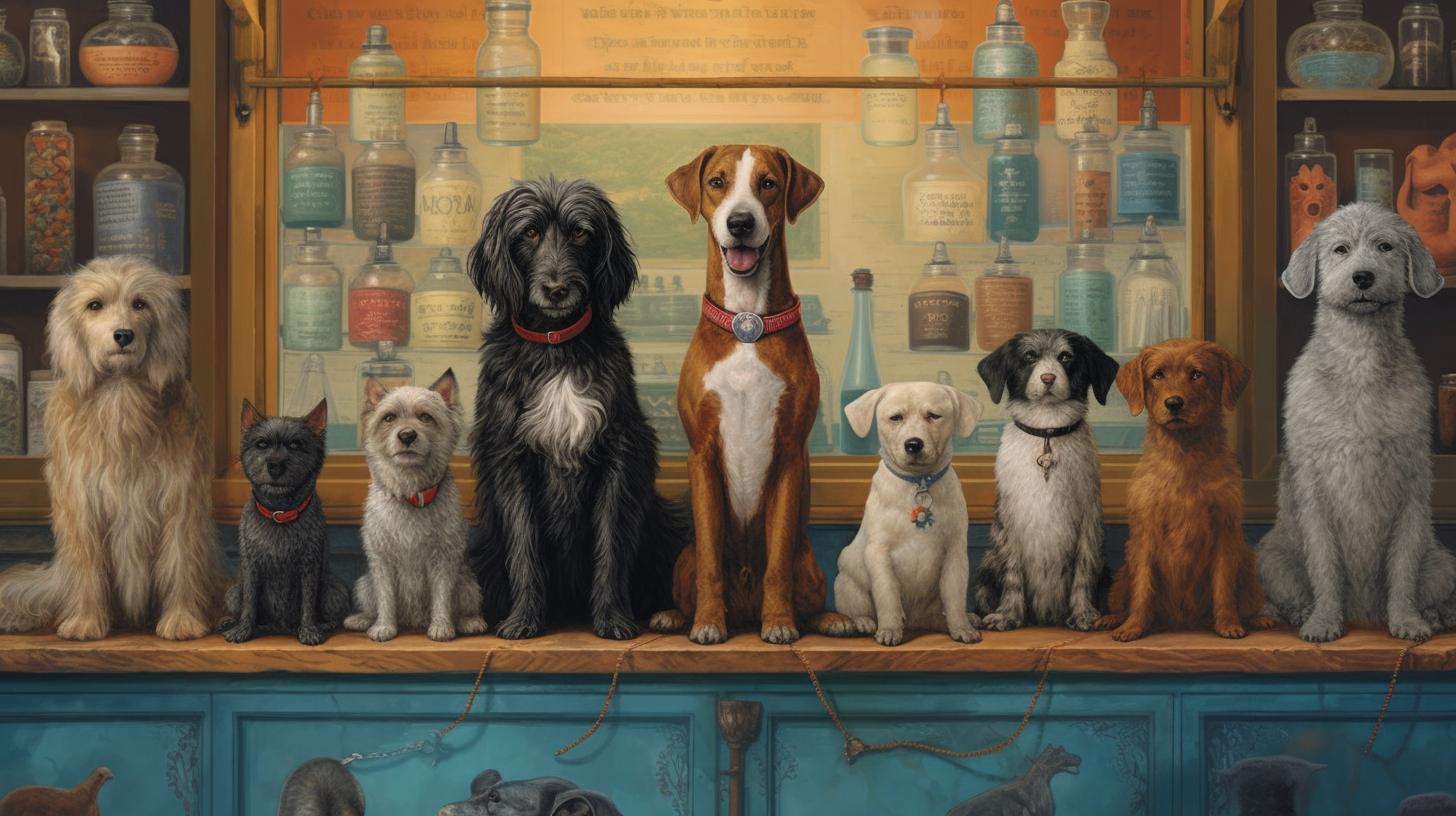Pets provide us with unconditional love and companionship, and it is only right that we return the favor by giving them the best care possible. Paws & Claws: Pet Health & Veterinary Care is a business that takes the health, wellness, and overall happiness of pets to heart. They are equipped to provide everything from pet health checkups and vaccinations to ongoing care and surgical treatments. Read on to find out more about this promising pet healthcare practice.
1. Steps to Pet Health: Caring for Your Furry Friends
Caring for a pet can be a rewarding experience, but it is a lot of work. Many of us want to keep our furry friends happy and healthy, so here are some essential steps to make sure your pet stays in tip-top condition.
Regular Check-Ups: Make sure you take your furry friend for regular check-ups to the vet. This is especially important for young animals as they require more care and attention than adult animals. The vet can assess your pet’s wellbeing and give advice on nutrition, exercise, disease prevention, and any other health concerns.
Vaccines: Keeping up with vaccinations can help prevent your pets from developing life-threatening illnesses. Talk to your vet about what vaccines are appropriate for your pet and make sure they stay up to date with the schedule.
Nutrition: Every pet has different needs when it comes to nutrition. What works for one animal may not work for another. Speak to your veterinarian or research carefully to learn about your pet’s specific requirements. As a rule of thumb, you should make sure your pet has access to fresh water at all times. Additionally, you should feed them balanced food portions according to their age and activity level.

2. Feeding and Exercise: The Foundations of Pet Wellness
Adequate nutrition and exercise are integral to pet health and must be prioritized to support overall wellness. Healthy nutrition and activity are not only important for the general prevention of disease, but can also play a key role in treatment and the management of various pet health conditions.
Just like our own diet, what we feed our pets must provide the essential nutrients their bodies need for optimal functioning. Incorporate a quality diet that is appropriate for your pet’s individual needs and age, ensuring they are receiving all of the vitamins and minerals they require for steady growth. A balanced diet and plenty of exercise are at the core of a healthy pet lifestyle.
- Talk to your vet for personalized advice for your pet’s diet and exercise needs.
- Offer enrichment activities to keep your pet mentally active and engaged.
- Encourage play and activity during walks, hikes, runs and on family trips.
- Choose treats that are specifically designed to suit your pet’s dietary needs.
By prioritizing nutrient-rich foods and regular exercise, pet owners can feel confident that their pet is getting everything they need to flourish. Awareness of the vital role proper nutrition and physical activity can play in your pet’s lifestyle will help ensure they live a long and happy life with you.
3. Recognizing Signs of Illness in Your Pet
It’s important to recognize possible signs of illness in your pet and act accordingly. Here are three signs to look out for:
- Loss of appetite – lack of eating and drinking can be a sign of illness. If your pet suddenly stops eating or drinking, take them to a vet immediately.
- Changes in activity level – if your pet is usually active but suddenly becomes lethargic or does not move, it could be an indication of something wrong. Look out for any drastic changes in movement that last for more than a few days.
- Changes in behavior – laboratory animals are known to be particularly good at hiding pain and illnesses – if you notice sudden changes in behavior such as aggression or isolation, it may be a sign of underlying illness.
By recognizing the signs of illness in your pet and responding to them quickly, you could potentially save their life. Ask your vet what other signs of illness you should watch out for. Being vigilant and responsive will help ensure your pet stays happy and healthy.

4. Vet Visits: Protecting your Pet’s Health
Regular visits to the vet are essential for protecting your pet’s overall health. Not only do vet visits help to detect and treat any existing issues, but it can also help to prevent any health problems.
Why Does My Pet Need to Visit the Vet? This is a key question that all pet owners need to ask. In order to be healthy and happy, your pet should visit the vet at least once a year; it’s really important to schedule these appointments so that your pet continues to stay healthy.
When you visit the vet, there are a variety of things they can do for your pet:
- Identify any existing health issues and figure out a plan for treatment
- Get vaccinations to protect against diseases and viruses
- Check for parasites or other infections
- Check their diet and overall health
These measures help to ensure your pet is in tiptop shape!
5. Knowing When to Call the Vet
No matter how experienced and knowledgeable horse owners think they are, sometimes there are situations where calling in the professionals is the only answer. It’s helpful to know when to call the vet and when it isn’t necessary.
When it comes to your horse’s health, it’s always best to err on the side of caution. Here are some situations when a call to the vet is necessary:
- Significant changes in behavior or visible health. If you notice anything out of the ordinary about your horse’s behavior or health, you should contact your vet as soon as possible.
- Signs of illness or injury. If your horse is displaying signs of an illness or injury, a vet visit is essential. This could include something as obvious as lameness or less obvious concerns such as difficulty breathing.
- Vaccinations and medication. It’s important to get any recommended vaccinations or booster shots for your horse on time, as well as to be sure medications are administered properly when necessary.
Additionally, it’s important to schedule regular preventive care visits with the vet to maintain your horse’s health. Vets are the experts after all, and they know the best steps to take for your horse’s wellbeing. When in doubt about your horse’s health, don’t be afraid to ask for help.

6. Emergency Veterinary Care: How to be Prepared
Caring for a pet is a full-time job, and emergency veterinary care can be one of the most stressful aspects. To be as prepared as possible for an unexpected visit to the vet or a pet emergency, pet parents should keep the following tips in mind:
- Keep a copy of the pet’s medical records on hand. This includes vaccination records, information on any pre-existing conditions, and their current medications. Knowing this information ahead of time can save time in the event of an emergency.
- Know which pharmacies allow pets. In some cases, a pet may need a prescription medication. Knowing which pharmacies stock the medication and will allow a pet inside can take some of the stress out of the situation.
- Be aware of regional veterinary emergency care centers. Knowing ahead of time which clinics offer emergency care services in the area can save a lot of time and provide pet parents with much-needed peace of mind.
However, even the most prepared pet parents may find themselves in a situation where they need emergency medical care for their pet. In those cases, try to remain calm and remember the following tips:
- Call ahead. Before transporting a pet to the clinic, it is important to call ahead and let them know that the pet is on the way.
- Bring a list of medications. Make sure to include the dosage, how often it is given, and any other important information about the medication.
- Transport pet safely. During an emergency, safety is of the utmost importance. Keep the pet’s head, neck, and spine stabilized during transport to prevent further injury.
By following these tips, pet owners can rest assured that they are doing everything in their power to provide their pet with the best care in the event of an emergency.
7. Vaccines and Other Preventive Care: A Must for Pet Owners!
Vaccines and preventive care are vital to the health of your pet. Vaccines can help protect your pet from diseases and infections and preventive care helps keep them happy, healthy, and safe. Here are some of the essential vaccines and preventive care measures you should consider:
- Rabies: Required for all dogs and cats in the United States.
- Distemper: Given to cats, dogs and ferrets to prevent against distemper
- Leptospirosis: Given to dogs to prevent against infection
- Bordetella: Vaccination for kennel cough in dogs
- Feline Leukemia: Vaccination for cats that can prevent against feline leukemia
- Fecal Matters: Periodic fecal tests to check for parasites
In addition to vaccines, preventive care also includes regular vet check-ups, dental care, nutrition, and exercise. Regular vet check-ups allow your vet to assess the overall health of your pet and identify any potential problems. Dental care helps remove debris and tartar buildup which can cause dental diseases and other health issues. Proper nutrition is essential to your pet’s health, providing them with essential vitamins and minerals to support their wellbeing. Exercise helps keep your pet’s muscles and joints healthy as well as helping them maintain a healthy weight.
Taking the time to invest in the health of your pet is crucial in promoting their wellbeing and overall quality of life. Vaccines and preventive care can help protect your pet and reduce the risk of diseases and infections. Make sure to speak to your vet to ensure your pet stays up to date on the vaccinations and preventive care measures they need.

8. Practices to Put Your Pets at Ease During Veterinary Visits
Some pets are anxious during vet visits, but there are things you can do to put them at ease. To help your furry friend make the most of their visit, try these 8 practices:
- Bring along your pet’s favorite toy or a blanket that smells like home – this will provide them with a sense of security.
- Arrive early for your appointment to let your pet explore. Familiarizing them with the office will help them feel comfortable.
- Speak in a happy, reassuring voice – this can really make a difference for your pet.
You may also want to practice at home by brushing Fido or rubbing/massaging your cat’s paws. The goal is to make them familiar with being touched in certain spots in order to prepare them for the vet’s examination. To keep pup or kitty content during the visit, you can give them treats – wet, canned food is usually a hit.
Above all else, reward your pet for being brave. A positive reinforcement goes a long way in making them feel comfortable and secure. With these 8 practices, you and your pet can make each veterinary visit smooth and stress-free.
Whether your pet’s needs are medical or behavioral, the team at Paws & Claws provides quality expertise for every situation. So, rest assured, your beloved four-legged friend is in the very best of hands.
